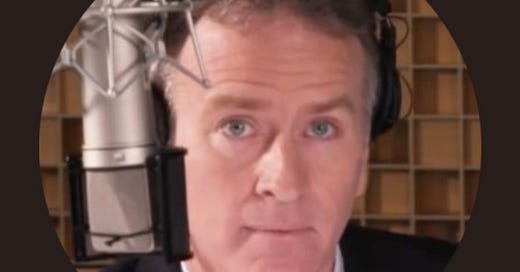I swing by your inbox today to drop off two stories I’ve found insightful. The first is an episode of the NPR Politics podcast. My colleagues Tamara Keith, Deepa Shivaram and Ashley Lopez get at one slice of the question, Who is Kamala Harris? Deepa has been reporting on the Democrat’s history as a courtroom prosecutor, district attorney and attorney general of California.
What really caught my ear is Harris’s refusal to sit comfortably in the “liberal” box, or any box. Her history as a prosecutor is complicated in progressive circles where people are concerned about law enforcement bias and racial justice. Yet she played it up during her 2020 presidential campaign (at a time when it didn’t fly) and she is definitely playing it up now (when times have changed, and it might).
Of course, Harris also embraced progressive initiatives in 2020, including many she has cast off in 2024. This helps to explain why Republicans have worked to paint her as a “chameleon.” It’s hard to say if this will stick, particularly since the lead Republican messenger is JD. Vance, who has reversed his opinion of Trump and much else.
But after listening to this podcast episode, two additional thoughts come to mind. First, there is an element of truth to the charge against Harris; she has a complex record and has cheerfully cast aside past policy views. And second, the Harris camp might almost respond to the accusation: Chameleon? So what? You got a problem with that? My colleagues report that she rejects any effort to label her one thing or another.
When campaigning, she can lean on different parts of her experience at different times—telling progressive voters that she knows how to fix the broken parts of the system, because she knows it from the inside; and telling voters worried about their security that she knows how to work the system to protect them.
The other story is by NBC’s Morgan Radford, who’s been spending time with evangelical voters who support former President Trump. It’s no news that the vast majority of self-described white evangelicals are behind Trump. Nor is it news that when he survived an assassination attempt, many supporters saw the hand of God.
But this story gets across a lot of nuances. For example, it’s not always that evangelicals support Trump; rather it’s that Trump supporters have begun calling themselves evangelical. The religious label followed their political choice rather than preceding it, or explaining it.
The story also shows polling that explains Trump’s political situation. Years ago, close to half of Republicans believed that Trump was chosen by God to be president. After he left office in 2021 amid the chaos of his failed attempt to cling to power, that number collapsed. One way to see Trump’s recent, ever-more-blatant embrace of Christian language is as his attempt to regain that holy aura.
But it may be hard: Radford reflects that many Americans believe whoever is president was chosen in accordance with God’s plans. Which means that Trump cannot necessarily win by claiming the mantle of God. It works the other way. He’d have to win first. Then he’d get back the mantle of God.
Thanks for reading Differ We Must, a companion to my book of the same name.




Candidates can legitimately change position when confronted with new information. The issue is can a candidate who once viewed Trump as a dangerous demagogue change his views when Trump hasn't changed one bit and has maybe gotten even more extreme.